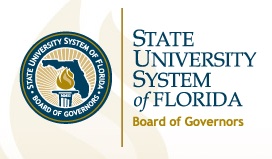 University presidents pledged Wednesday not to increase tuition next year if the Legislature agrees to plow another $118 million into the State University System’s budget.
University presidents pledged Wednesday not to increase tuition next year if the Legislature agrees to plow another $118 million into the State University System’s budget.
But leaders at the University of Florida and Florida State University would not pledge to stop pushing for legislation that would allow them to increase tuition by virtually unlimited amounts.
The “Aim Higher” initiative, unveiled at a press conference in the Capitol including most of the presidents and student body leaders of the state’s 12 universities, enters into a growing debate over how to fund higher education in Florida.
According to the university system, $118 million would equate to a tuition increase of 15 percent, the maximum the schools are allowed to ask for under the state’s differential tuition law.
Several universities had used that law in recent years to offset deep state cuts in higher education funding, though the consensus over the size of those tuition increases cracked last summer under pressure from Gov. Rick Scott.
“With an investment provided for our students, we promise not to seek one penny of a tuition increase this year,” said University of West Florida President Judy Bense.
The new funding should be tied to performance measures, the university presidents said, lining up with the premium that some legislative leaders have placed on education accountability.
And Senate Appropriations Chairman Joe Negron, R-Stuart, told reporters Wednesday that he would like to shift additional funding from health care into education areas, potentially allowing the university system to compete with top-notch public schools like the University of North Carolina, the University of Virginia, the University of Texas, the University of Michigan, and the University of California, Berkeley.
“That’s not entirely a function of money, but it is significantly a function of money,” Negron said.
Scott issued a statement praising the universities for focusing on the concept of “value” in higher education, but notably did not specifically mention the universities’ request for additional funding.
“We are pleased to share this important goal with many of Florida’s finest higher education leaders who are committed to holding the line on tuition,” Scott said. “We look forward to working closely with them as we put together a proposed budget and other policies for the upcoming legislative session.”
But the leaders of FSU and Florida dismissed questions dealing with whether they would continue to seek “preeminent university” legislation, vetoed by Scott last year, allowing schools that meet certain standards to raise tuition by virtually unlimited amounts.
“It’s a different topic,” said FSU President Eric Barron. “We need to have preeminent universities. We need to have those metrics and support that allow universities to be preeminent.”
And Bernie Machen, president at the University of Florida, stressed the standards that were part of that bill as the key benefit.
“The tuition aspect of it was simply one mechanism that could be used to receive new resources,” Machen said. “This is part of that whole plan. You’ve got to take a much longer view of where we’re going with the university system than just focusing on one year’s tuition issue.”
By BRANDON LARRABEE
THE NEWS SERVICE OF FLORIDA


